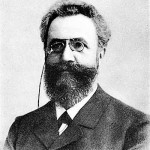What math teachers should know about memory
Posted by: Gary Ernest Davis on: April 11, 2011
 How often do mathematics teachers say about students: “If only they would memorize the information”?
How often do mathematics teachers say about students: “If only they would memorize the information”?
In my experience, a lot, and with considerable anguish.
What this concern shows, in my experience, is a lack of understanding of human memory systems – an aspect of brain functioning that is critical to education.
Rote memorization
This is about a useless a technique as was ever thought of for educational purposes, yet it is a plea made often by teachers: “Why won’t they just rote memorize it?”
The definitive study on rote memorization was done by Hermann Ebbinghaus and published in 1885. He studied the rate of learning and forgetting of nonsense syllables by himself, and formulated his law of forgetting in which an exponential decay describes the rate at which rote memorized information is lost.
One might argue that mathematical terminology, facts, procedures, and formulas are not nonsense syllables, having a great deal of logical structure. This argument misses the point that to many students the mathematics they are expected to remember appears to them to be more or less nonsense syllables, devoid of any real meaning. Mathematical experience is not, for these students, something that they can fit into a broader scheme of related memories. As a result their knowledge decays exponentially, and as experience shows, with a quite small half-life.
Students often recognize this problem themselves, as the following poignant example illustrates:
Should I drop my AP Calculus Class? (from Yahoo! Answers)
Motor memory
“They can do it, but they can’t explain it.”
 I can recall students who, after much practice, can carry out Gaussian elimination to solve a system of linear equations.
I can recall students who, after much practice, can carry out Gaussian elimination to solve a system of linear equations.Declarative memory
What to do?
12 Responses to "What math teachers should know about memory"
[…] ETA: If you want to learn more about memory and the teaching of mathematics, check out Republic of Math’s post on the subject! […]
Educators (and society in general) confusing rote memorization with actual learning is the saddest and biggest problem in education.
And this occurs generation after generation.
We solved the problem of “memory” thousands of years ago.
It’s called a piece of paper and a stylus of some sort.
I have been teaching Mathematics in secondary schools for about twenty years and completely endorse the views in this article except for two points.
Children are slowed in their learning of mathematical ideas if number bonds and relationships are not memorised; students not realising that 4/8 is 1/2 when trying to find inv sin (4/8) and older ones not remebering that inv sin 1/2 is 30 degrees or pi/6 rads. Students do have to memorise some facts.
Secondly, a final desperate strategy to help a struggling or lazy student through his or her exams might well be to say “don’t worry about why, just remember the steps”.
In nearly all my teaching I try to explain why something works; partly because has been such a lot of work to understand the ideas myself and it doesn’t make sense to take short cuts.
Both 4/8 = 1/2 and sin 30 = 1/2 have simple and teachable principles behind the “fact”. Fractions’ numerator and denominator get divided by their highest common factor, and the trig can be demonstrated by constructing an equilateral triangle of side 2 and bisecting it.
How about having clear explanations that also serve to link past knowledge to new ideas? I’m a huge fan of connecting the existing knowledge base to present and future learning but also like to use reason in my explanations of ideas; this requires carefully planned and clear explanations.
I think rote memorization is a misnomer. Effectively, I see the process as imprinting, rather than memorizing. For me, memorization requires some access mechanism whereby the memory can be retrieved. The ‘imprint’ is like ducklings or primitive reptiles blindly following whatever they see as “mother”… once “mother” abandons them to grow up, some of them are not going to make it to adulthood.
If by “Students do have to memorise some facts,” Jonathan means that students have to form relationships between (similar) concepts in their memory which can be accessed (almost) automatically, otherwise I disagree. After all, 4/8 is only equivalent to 1/2, in most cases, but they are not (necessarily) identical!
Probably the only people who need to memorize anything are actors, and they have to learn to humanize the memorized words to make them believable, i.e. go beyond the memorization.
There is no place for memorization in mathematics, but there is definitely a place for better use of memory.
Every time one of my students writes down a formula I make him/her explain it to me in words. “Currents cause magnetic fields”
When they can’t I know I have some more work to do…
I think it’s important not to omit the moral context.
Children in early math classes are usually there unwillingly and are not particularly interested, at least not at that phase of their intellectual development, in the subject matter. It is unreasonable to expect them to remember it or to memorise it easily.
OTOH somebody coming voluntarily to the topic, because they are truly interested in it *at the time of learning*, will engage with his whole mind.
drawing (on paper / in your head) a isosceles with sides (1,1,sqrt2) frees me from memorizing sin 45d = 1/sqr2
the same thing for right triangle (90,60,30) with sides (1,sqrt3,2) frees me from memorizing sin 30=1/2, sin=sqrt3/2, etc
I think part of the way one learns comes back to an underlying assumption about why we learn mathematics. One thing I’ve noticed both in my training at college and on the job is that there seem to be largely two groups of thought with a decent bit of overlap: those who are interested in mathematics because of the why and those interested because of the what (can be accomplished). I work at a custom engineering firm and it’s pretty clear who leans which way. The question becomes much more muddied at a high school level. The math we learn in elementary school more or less has a public expectation attached to learning it: if you can’t multiply two numbers, it’s going to be harder to do math on the job. Early algebra also makes pretty good sense to know for most jobs, too. For these tasks, having a rote level of ability is a great thing. However, when you start to enter higher level maths – geometry, for example – the balance of why and what starts to change. How many people really learn about similar triangles for math they’ll do later? Calculus is especially tough because it falls into both camps: highly theoretical, but also highly practical for some fields (like engineering). I didn’t like calculus but got a math degree; I hated the rote work and didn’t feel it was at all attached to the heart of the algorithm but rather was slowing me down. I think having an understanding of what the student wishes to accomplish with the math is really important: an engineering-school-bound student may need more hands on practice with story problems in calculus surrounding a particular concept, but a mathematics (or maybe CS, etc.) student may find it much more beneficial to learn the concept at a high level and make detours into other maths (modular arithmetic, for example).
So my overall question is this: is there a point at which the cost of gaining the motor memory has diminishing returns and if so is that point well before the end of high school for some students (ironically, many of the ones interested in higher level maths)?
Teachers of mathematics, from graduate school adjuncts to distinguished professors at elite institutions, generally not only fail to develop in their students the declarative, relational memory they would count as evidence of understanding; they in turn exhibit the same failure to develop declarative, relational memories that would count as evidence of understanding their own teaching methods. Although the better teachers consult the literature in their own fields as a matter of course, the failure to consult the literature on education–perhaps out of a perception that this literature is preoccupied with “the theory of the theory” and has no reliable empirical basis–illustrates that the problem of knowledge transfer is not limited to students.
But there is at least one theory of learning with empirical support and with practical implications for instructors: the cognitive load theory of Sweller. According to this theory, instructors ought to be limiting extraneous cognitive load and promoting germane cognitive load. See the wikipedia article on cognitive load theory and related references.


April 11, 2011 at 8:50 am
Yes, yes, and yes! I need to go link to this post in MY last post!